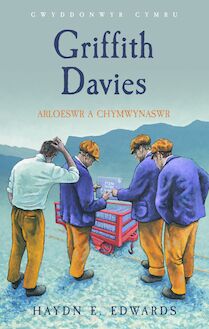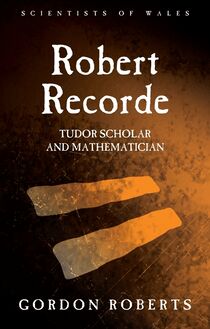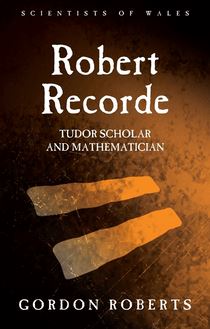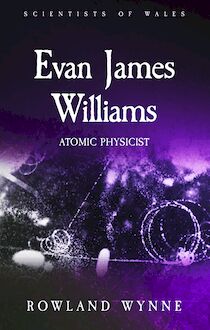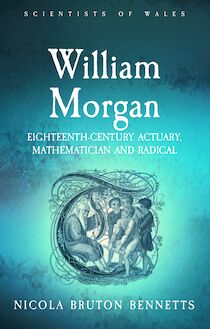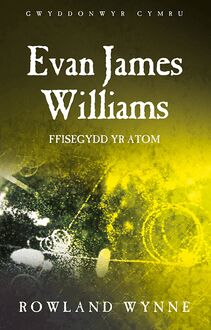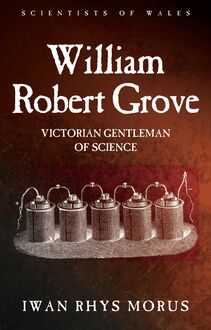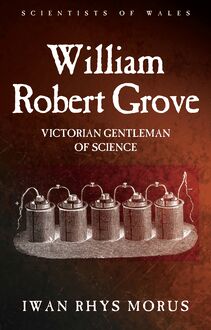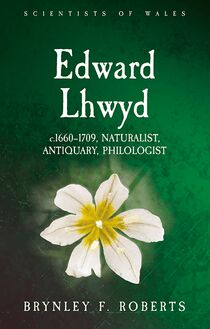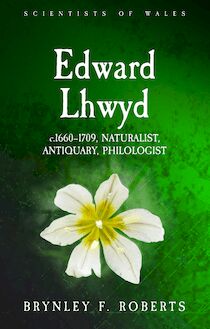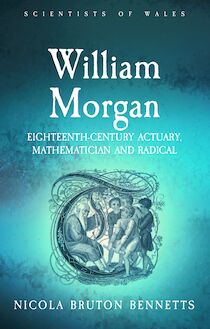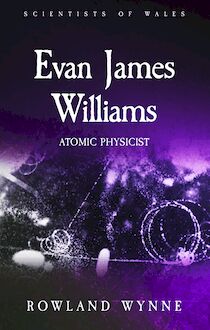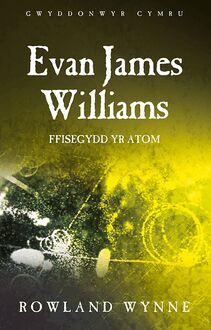-
 Univers
Univers
-
 Ebooks
Ebooks
-
 Livres audio
Livres audio
-
 Presse
Presse
-
 Podcasts
Podcasts
-
 BD
BD
-
 Documents
Documents
-
- Cours
- Révisions
- Ressources pédagogiques
- Sciences de l’éducation
- Manuels scolaires
- Langues
- Travaux de classe
- Annales de BEP
- Etudes supérieures
- Maternelle et primaire
- Fiches de lecture
- Orientation scolaire
- Méthodologie
- Corrigés de devoir
- Annales d’examens et concours
- Annales du bac
- Annales du brevet
- Rapports de stage
La lecture à portée de main
Vous pourrez modifier la taille du texte de cet ouvrage
Découvre YouScribe en t'inscrivant gratuitement
Je m'inscrisDécouvre YouScribe en t'inscrivant gratuitement
Je m'inscrisEn savoir plus
Vous pourrez modifier la taille du texte de cet ouvrage
En savoir plus

Description
Lhwyd, the illegitimate son of a father ruined by the Civil War, had to make his own way in the world. A competent botanist before going up to Oxford as a student, he spent much time there at the Botanical Garden before being appointed to the newly established Ashmolean Museum, where he became its second Keeper. This biography traces the development of his research interests from botany to palaeontology – and then to antiquarian studies, which led to him studying the Celtic languages as a source of linguistic evidence in historical studies. Thus he became the founder of Celtic Studies. Lhwyd’s diverse research interests were underpinned by an evidence-led methodology – the collection (by personal observation where possible) of material, which would then be classified as a preliminary to drawing conclusions – and, as such, his is a valuable contribution to the history of science.
Dedication
Preface
Abbreviations
A note on dates and money
Glossary
List of Illustrations
Introduction
1 Lloyd of Llanforda
2 Life at Llanforda: father and son
3 Oxford
4 Apprenticeship years at the Ashmolean
5 Keeper of the Ashmolean Museum
6 Fossils and formed stones: Lithophylacii britannici ichnographia, 1699
7 Britannia, 1695
8 Archæologia Britannica: Wales
9 Archæologia Britannica: Ireland, Scotland, Cornwall, Brittany
10 The Glossography and after
11 Afterlife
Bibliography
Index
Sujets
Informations
| Publié par | University of Wales Press |
| Date de parution | 15 juillet 2022 |
| Nombre de lectures | 0 |
| EAN13 | 9781786837844 |
| Langue | English |
| Poids de l'ouvrage | 1 Mo |
Informations légales : prix de location à la page 0,1074€. Cette information est donnée uniquement à titre indicatif conformément à la législation en vigueur.
Extrait
SCIENTISTS OF WALES
Edward Lhwyd
SCIENTISTS OF WALES
Series Editor
Gareth Ffowc Roberts
Bangor University
Editorial Panel
John V. Tucker
Swansea University
Iwan Rhys Morus
Aberystwyth University
Brynley F. Roberts, 2022
All rights reserved. No part of this book may be reproduced in any material form (including photocopying or storing it in any medium by electronic means and whether or not transiently or incidentally to some other use of this publication) without the written permission of the copyright owner except in accordance with the provisions of the Copyright, Designs and Patents Act 1988. Applications for the copyright owner s written permission to reproduce any part of this publication should be addressed to the University of Wales Press, University Registry, King Edward VII Avenue, Cardiff CF10 3NS.
www.uwp.co.uk
British Library Cataloguing-in-Publication Data
A catalogue record for this book is available from the British Library.
ISBN 978-1-78683-782-0
eISBN 978-1-78683-784-4
The right of Brynley F. Roberts to be identified as author of this work has been asserted in accordance with sections 77, 78 and 79 of the Copyright, Designs and Patents Act 1988.
The University of Wales Press gratefully acknowledges the support of the Books Council of Wales in publishing this title.
The publisher has no responsibility for the persistence or accuracy of URLs for any external or third-party internet websites referred to in this book, and does not guarantee that any content on such websites is, or will remain, accurate or appropriate
In Memoriam
William Huddesford (1732-1772), Richard Ellis (1865-1928), R. T. Gunther (1869-1940), Frank V. Emery (1930-1987)
F RONTISPIECE Bronze bust of Edward Lhwyd, sculpted by John Meirion Morris, at the University of Wales Centre for Advanced Welsh and Celtic Studies, Aberystwyth Photograph by Gareth Lloyd-Hughes
CONTENTS
Series Editor s Foreword
Preface
Abbreviations
A Note on Dates, Money and Transcriptions
Glossary
List of Illustrations
Introduction
1 The Lloyds of Llanforda and Lhwyd s Grandfather, Edward Lloyd
2 Life at Llanforda: Father and Son
3 Oxford
4 Apprentice Years at the Ashmolean
5 Keeper of the Ashmolean Museum
6 Fossils and Formed Stones : Lithophylacii Britannici Ichnographia , 1699
7 Britannia , 1695
8 Arch ologia Britannica : The Great Tour , 1697-1701: Wales
9 Arch ologia Britannica : Parallel Observations
10 The Glossography and After
11 Afterlife
Notes
Bibliography
SERIES EDITOR S FOREWORD
W ales has a long and important history of contributions to scientific and technological discovery and innovation stretching from the Middle Ages to the present day. From medieval scholars to contemporary scientists and engineers, Welsh individuals have been at the forefront of efforts to understand and control the world around us. For much of Welsh history, science has played a key role in Welsh culture: bards drew on scientific ideas in their poetry; renaissance gentlemen devoted themselves to natural history; the leaders of early Welsh Methodism filled their hymns with scientific references. During the nineteenth century, scientific societies flourished and Wales was transformed by engineering and technology. In the twentieth century the work of Welsh scientists continued to influence developments in their fields.
Much of this exciting and vibrant Welsh scientific history has now disappeared from historical memory. The aim of the Scientists of Wales series is to resurrect the role of science and technology in Welsh history. Its volumes trace the careers and achievements of Welsh investigators, setting their work within their cultural contexts. They demonstrate how scientists and engineers have contributed to the making of modern Wales as well as showing the ways in which Wales has played a crucial role in the emergence of modern science and engineering.
RHAGAIR GOLYGYDD Y GYFRES
O r Oesoedd Canol hyd heddiw, mae gan Gymru hanes hir a phwysig o gyfrannu at ddarganfyddiadau a menter gwyddonol a thechnolegol. O r ysgolheigion cynharaf i wyddonwyr a pheirianwyr cyfoes, mae Cymry wedi bod yn flaenllaw yn yr ymdrech i ddeall a rheoli r byd o n cwmpas. Mae gwyddoniaeth wedi chwarae r l allweddol o fewn diwylliant Cymreig am ran helaeth o hanes Cymru: arferai r beirdd llys dynnu ar syniadau gwyddonol yn eu barddoniaeth; roedd gan w r y Dadeni ddiddordeb brwd yn y gwyddorau naturiol; ac roedd emynau arweinwyr cynnar Methodistiaeth Gymreig yn llawn cyfeiriadau gwyddonol. Blodeuodd cymdeithasau gwyddonol yn ystod y bedwaredd ganrif ar bymtheg, a thrawsffurfiwyd Cymru gan beirianneg a thechnoleg. Ac, yn ogystal, bu gwyddonwyr Cymreig yn ddylanwadol mewn sawl maes gwyddonol a thechnolegol yn yr ugeinfed ganrif.
Mae llawer o r hanes gwyddonol Cymreig cyffrous yma wedi hen ddiflannu. Amcan cyfres Gwyddonwyr Cymru yw i danlinellu cyfraniad gwyddoniaeth a thechnoleg yn hanes Cymru, i chyfrolau n olrhain gyrfaoedd a champau gwyddonwyr Cymreig gan osod eu gwaith yn ei gyd-destun diwylliannol. Trwy ddangos sut y cyfrannodd gwyddonwyr a pheirianwyr at greu r Gymru fodern, dadlennir hefyd sut y mae Cymru wedi chwarae rhan hanfodol yn natblygiad gwyddoniaeth a pheirianneg fodern.
PREFACE
M y active interest in Edward Lhwyd, first aroused quite fortuitously towards the end of the 1960s when I was working on an unrelated project, was given an opportunity to develop when I was elected to the Sir John Rh s Fellowship at Jesus College, Oxford, for 1973-4. I am very grateful to the Principal and Fellows, in particular the late Sir Idris Foster, for their welcome and hospitality at that time as well as for their support. During that year I met and enjoyed the company of the late Frank Emery, Fellow of St Peter s College. With characteristic kindness, he welcomed this tyro into a field that he had long made his own, and not only generously shared with me transcripts, off-prints and references but also gave me a great deal of his time to discuss his research and insights (in addition to regaling me with tales of Welsh rugby history). But for his untimely death in 1987 this book would have been unnecessary. Over the years I have been given a great deal of cooperation and assistance in Oxford by staff at the Bodleian Library, especially at the Weston Library and Duke Humphrey s Library (as it was then called), the Ashmolean Museum and the Museum of the History of Science (Old Ashmolean); the British Library; and the libraries of the universities of Swansea and Aberystwyth. For many years I have been privileged to enjoy the resources and cooperation of the National Library of Wales, Aberystwyth, and generations of its staff have always been unfailingly generous in their assistance.
I was able to complete transcribing most of Lhwyd s correspondence not long after leaving Oxford and, thanks to the skilful efforts of a number of typists, the letters were eventually available in typescript; the work was financed by the award of a Leverhulme Emeritus Senior Scholarship in 1997, and also a grant from the University of Wales Vernham Hull Memorial Prize Fund. The sheer volume of paper and the magnitude of the task of checking and editing filled me with despair until, quite unexpectedly, Dr Rhodri Lewis suggested including the Lhwyd correspondence in the union catalogue Early Modern Letters Online ( EMLO ), created and maintained by the international research project Cultures of Knowledge . Prof. Dafydd Johnston, then Director of the University of Wales Centre for Advanced Welsh and Celtic Studies, Aberystwyth, agreed to collaborate and to adopt the Lhwyd correspondence as part of the Centre s research programme. We were joined by the late Prof. Richard Sharpe, of Oxford University s Faculty of History, and other members of the Cultures of Knowledge project, and together we were able to appoint Helen Watt as research assistant. Her skills as an archivist and historian, her wholehearted enthusiasm for the project and her practical interest in its development were crucial to its successful and timely completion. I owe her a deep personal debt of gratitude.
I am grateful to the editors of the Scientists of Wales series, especially Dr Gareth Roberts, for their kind invitation to participate in the series and to contribute this study. It was the necessary impetus that I required to attempt to impose order on material and notes that I had been collecting for too long a period. Dr Llion Wigley of the University of Wales Press has shown much understanding and sympathy in the inevitable interruptions that occurred during the planning and writing of this book; his forbearance and patience have been a great help. I have frequently profited from the friendship and collaboration of other scholars who have freely given of their expertise and who have always been willing to answer queries, to make suggestions and to draw my attention to relevant publications. Among them are the late Prof. R. Geraint Gruffudd, Dr Dewi Evans, Prof. Nancy Edwards, Andrew Hawke, Dr Frank Horsman, Dr Daniel Huws, Dr Oliver Padel, Dr Colin Thomas, Dr Leigh T. I. Penman, Dr Marion L ffler; Dr Elissa R. Henken, Mary Burdett-Jones and Philip Henry Jones are friends whose practical help and unfailing encouragement have been more crucial than they themselves perhaps realised. I must apologise to those others whose names I have inadvertently not recorded here.
Edward Lhwyd has been my companion for many years, and since 1971 I have published accounts of aspects of his life. The major primary biographical source is his correspondence, comprising over 2,000 letters written or received by him. Almost all of those written by Lhwyd were edited by R. T. Gunther, Life and Letters of Edward Lhwyd (1945). These, together with the letters that Lhwyd received, can now be read online and in sequence on the EMLO database, Early Modern Letters Online , edited by Howard Hotson and Miranda Le
-
 Univers
Univers
-
 Ebooks
Ebooks
-
 Livres audio
Livres audio
-
 Presse
Presse
-
 Podcasts
Podcasts
-
 BD
BD
-
 Documents
Documents
-
Jeunesse
-
Littérature
-
Ressources professionnelles
-
Santé et bien-être
-
Savoirs
-
Education
-
Loisirs et hobbies
-
Art, musique et cinéma
-
Actualité et débat de société
-
Jeunesse
-
Littérature
-
Ressources professionnelles
-
Santé et bien-être
-
Savoirs
-
Education
-
Loisirs et hobbies
-
Art, musique et cinéma
-
Actualité et débat de société
-
Actualités
-
Lifestyle
-
Presse jeunesse
-
Presse professionnelle
-
Pratique
-
Presse sportive
-
Presse internationale
-
Culture & Médias
-
Action et Aventures
-
Science-fiction et Fantasy
-
Société
-
Jeunesse
-
Littérature
-
Ressources professionnelles
-
Santé et bien-être
-
Savoirs
-
Education
-
Loisirs et hobbies
-
Art, musique et cinéma
-
Actualité et débat de société
- Cours
- Révisions
- Ressources pédagogiques
- Sciences de l’éducation
- Manuels scolaires
- Langues
- Travaux de classe
- Annales de BEP
- Etudes supérieures
- Maternelle et primaire
- Fiches de lecture
- Orientation scolaire
- Méthodologie
- Corrigés de devoir
- Annales d’examens et concours
- Annales du bac
- Annales du brevet
- Rapports de stage
